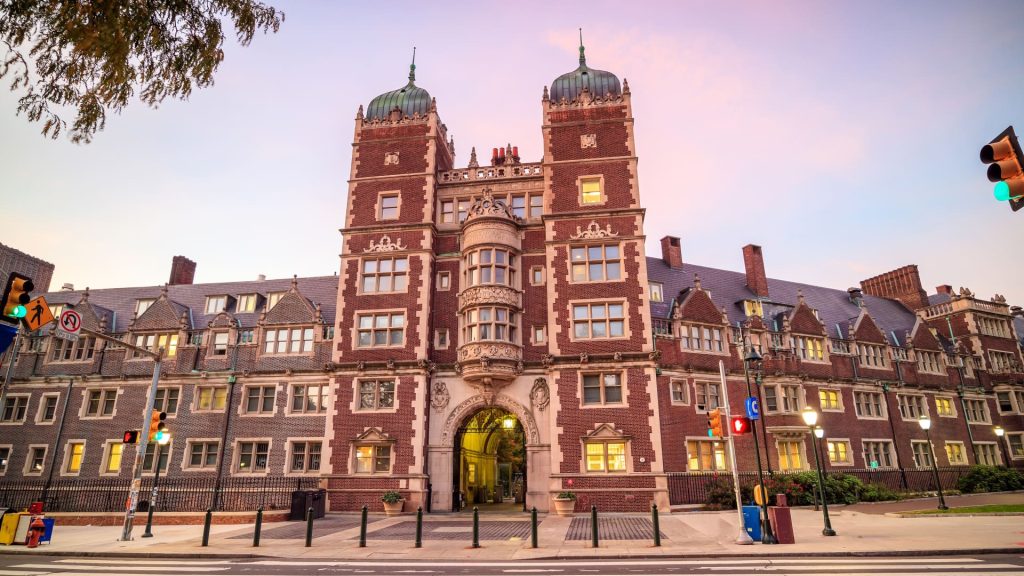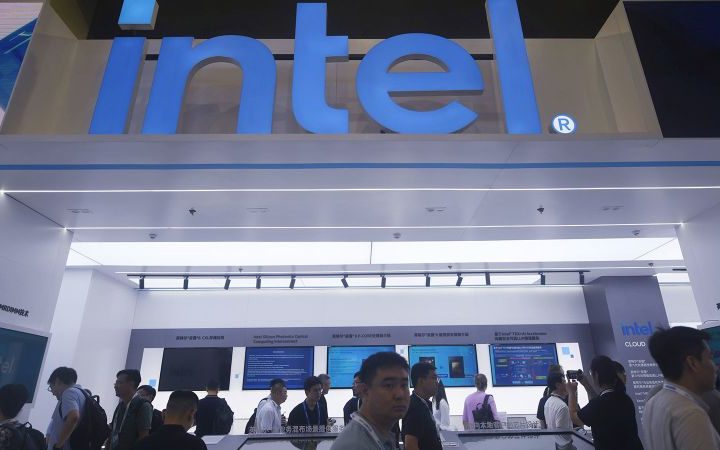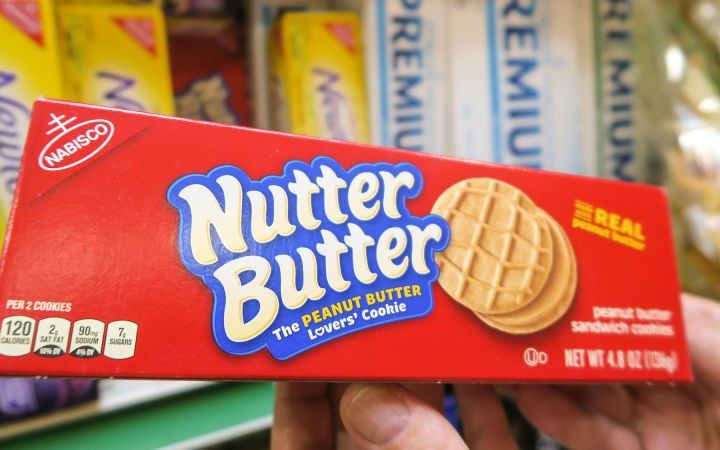Sam Bankman-Fried was found guilty on Thursday for his role in the collapse of crypto exchange FTX.
After 15 days of testimony and about four and a half hours of deliberations, jurors returned a verdict that found him guilty on seven counts of fraud and conspiracy.
Bankman-Fried looked sunken as the verdict was read out. After the jury was released, he stood, head bowed and shaking as his lawyer spoke in his ear. A few feet behind him, his parents stood watching. As Bankman-Fried was escorted out of the room, he turned back and smiled at his parents. His father, Joe Bankman, put his arm around his wife’s shoulders. As their son left the room, Barbara Fried broke down in tears.
In remarks outside the Manhattan courthouse on Thursday, US Attorney Damian Williams lauded the jury’s verdict, saying the government has “no patience” for fraud and corruption.
“These players like Sam Bankman-Fried might be new, but this kind of fraud, this kind of corruption, is as old as time,” he said.
But Bankman-Fried’s attorney said they were “disappointed.”
“We respect the jury’s decision. But we are very disappointed with the result,” said lead defense attorney Mark Cohen in a statement. “Mr. Bankman Fried maintains his innocence and will continue to vigorously fight the charges against him.”
The sentencing hearing date will be March 28, 2024.
Bankman-Fried was found guilty of stealing billions of dollars from accounts belonging to customers of his once-high-flying crypto exchange FTX. He was also found guilty of defrauding lenders to FTX’s sister company, the hedge fund Alameda Research, which held FTX customer funds in a bank account.
During his trial, Bankman-Fried said he learned in 2020 that FTX customer funds were held by Alameda but he did not take action to safeguard them.
When he later discovered in the fall of 2022 that Alameda owed $8 billion to FTX, no one was fired.
Other charges Bankman-Fried was found guilty of include defrauding investors in FTX and a money-laundering charge.
The verdict caps a yearlong saga that took the 31-year-old Bankman-Fried from a billionaire living in a luxury apartment in the Bahamas to a defendant in one of the biggest white-collar crime cases since Bernie Madoff’s Ponzi scheme that fell apart in 2009.
FTX was once one of the most trusted names in crypto. The trial has been closely watched by regulators, investors and the crypto community for signs of a potential larger crackdown on the largely unregulated crypto market.
The verdict comes a year after FTX entered a death spiral that fueled a panic in the trillion-dollar crypto industry and left an estimated 1 million customers facing potential losses. Prior to its collapse, the exchange attracted millions of users and a coterie of A-list backers, such as Tom Brady and Gisele Bundchen.
FTX, founded by Bankman-Fried in 2019, billed itself as a safe and easy way to start trading cryptocurrencies – digital assets whose values are based largely on a collective hope for their future application, which remains murky.
In the early 2020s, with interest rates at zero and millions of amateur investors stuck at home, FTX’s popularity as a crypto portal skyrocketed. By 2022, FTX was airing Super Bowl ads and plastering its name on the Miami Heat’s arena.
But FTX collapsed into bankruptcy on November 11, 2022 after what was effectively a run on the bank – a customer panic sparked by a leaked document that suggested irregular financial dealings between FTX and another firm owned by Bankman-Fried.
But, unlike bank customers, FTX depositors had no federal insurance fund to compensate them when the cash dried up. And despite FTX’s public assurances that it didn’t invest or move customer deposits in any way, Bankman-Fried’s other firm had been secretly siphoning deposits to repay its own lenders, underwrite executives’ luxury lifestyles, gamble in crypto markets and funnel millions of dollars in US political campaigns.
That other firm was Alameda Research, a hedge-fund-like crypto trading house that Bankman-Fried launched in 2017.
Almost as soon as FTX was created in 2019, Bankman-Fried ordered co-founder Gary Wang to and Chief Technology Officer Nishad Singh to tweak the platform’s code to allow Alameda, as a customer on the exchange, certain “special privileges” that other customers lacked, according to Wang’s testimony.
Both Wang and Singh have pleaded guilty to financial crimes as part of a plea deal with the government.
Those privileges included a virtually unlimited line of credit for Alameda that its executives could tap at any time, Wang testified. Alameda’s main trading account was also given an “allow negative” flag, meaning it could incur a negative balance without repercussion – a privilege that no other FTX customer was granted, Wang testified.
Over the four weeks of his trial, Bankman-Fried watched a parade of people he once considered his closest confidantes testify against him. They included friends from math camp and MIT who became his co-founders; and, critically, his ex-girlfriend and trusted business adviser, 28-year-old Caroline Ellison.
The most damning evidence against Bankman-Fried came from Ellison, who testified for the prosecution over three days.
As both the CEO of Alameda and Bankman-Fried’s romantic partner for two years, Ellison was uniquely positioned to comment on what was happening within the tight inner circle of Alameda and FTX executives, many of whom lived together in a $30 million luxury apartment in the Bahamas.
Ellison’s at times emotional testimony offered a narrative of events in which virtually every decision at both Alameda and FTX came down to Bankman-Fried, who founded and was the majority owner of both firms. A common refrain from Ellison, when asked who directed her to carry out various actions, criminal or otherwise, was a variation on the words “Sam did.”
Faced with a coterie of high-level witnesses aligned against him, Bankman-Fried’s defense was challenged from the start.
During the trial, his defense counsel appeared to stumble in cross-examining those witnesses.
Lawyers typically advise their clients in criminal cases not testify, as it opens them up to potentially damning cross-examination from prosecutors. But multiple legal experts said that Bankman-Fried’s case was an exception. He had no allies left to counter the business partners who’d turned on him. Taking the stand was a Hail Mary – the kind of high-stakes risk that Bankman-Fried built his career on.
“Bankman-Fried has an outsized appetite and tolerance for risk,” said Howard Fischer, a partner at the law firm Moses Singer and a former SEC attorney.
“Testifying is hard work. It is not just getting the details of the story right, but learning how to present yourself under questioning, and dealing with the stress of cross-examination,” Fischer said. “Optimally, one would want to engage in months of practice before mock juries before taking the stand.”
But Bankman-Fried’s trial prep was complicated significantly after Judge Lewis Kaplan revoked his bail in August, after prosecutors said the defendant leaked documents about Ellison to the New York Times. That was a final straw, following other instances of alleged witness tampering, for Kaplan, who remanded Bankman-Fried to a federal jail in Brooklyn, New York, where his access to lawyers was more limited.
Judge Lewis Kaplan set Sam Bankman-Fried’s sentencing hearing for March 28. He is expected to remain in a federal jail in Brooklyn while he awaits sentencing.
His legal headaches are far from over.
A second trial on five additional charges that were severed from these proceedings is scheduled for March, though Judge Kaplan asked prosecutors to decide by February 1 whether that will proceed.
The jury deliberated for a little under five hours before returning a verdict.
Sam Bankman-Fried’s parents sat in the second row of the galley and tightly hugged each other through the reading of each of the counts.
As each “guilty” was read out loud, Joseph Bankman sank his head deeper and deeper into his lap.
Barbara Fried had her arm around him and kept squeezing his shoulder, as did he to her.
Her jaw quivered and she pressed the palms of her hands to her cheeks as she listened to the verdict, staring directly at her son, eyes cast downward and frowning.
When people began to exit the courtroom, Bankman-Fried’s parents walked over to him. Lead defense attorney Mark Cohen signaled them to wait, while he spoke to Bankman-Fried.
Bankman-Fried did not turn around to see his parents until he was close to the exit door and gave them a somber smile as Barbara Fried pounded her hand into her chest on her heart, and then sank her face into Joseph Bankman’s shoulder.
Read the full article here






